Lahore, Pakistan: The Faranian National Conference on Maritime Affairs was held at Government Islamia Graduate College, Civil Lines Lahore (GIGCCL) in collaboration with the Maritime Centre of Excellence (MCE), Pakistan Navy War College (PNWC).
The conference aimed to promote understanding of maritime power and its critical role in Pakistan’s development and security.
Rear Admiral Jawad Ahmed HI(M), Commandant PNWC, addressed the gathering as the Chief Guest, with an insightful talk on the shifting geopolitical environment in the Indian Ocean Region (IOR). While pointing out the convergence of traditional and non-traditional maritime threats, he emphasized the Navy’s strategic response to emerging threats, driven by regional collaboration and operational readiness at sea. He also emphasized that the Pakistan Navy remains ready to thwart any aggression in the maritime domain.
Prof. Dr. Akhtar Hussain Sandhu, Principal GIGCCL, reflected on the broader role of the Pakistan Navy, not just in defending the coastline, but also in ensuring the safety of trade routes, especially in times of crisis. He appreciated the efforts of MCE PNWC in working closely with academic institutions to address the lack of maritime awareness and enrich discourse on the subject in academic and policy circles.
Cdr (R) Faisal Shabbir, Director Research Wing MCE, chaired Session I of the conference during which Ms. Fizzah Shuja, Research Associate MCE, also presented her paper “Maritime Security in the Age of Hybrid Warfare.” She highlighted how hybrid threats exploit legal grey zones and critical infrastructure, demanding inclusive responses at the national level.
Lt Cdr Dr. Sufian Ullah from MCE graced the Parallel Session II as Chief Guest. The session also featured Ms. Hamna Ghias Sheikh, Research Associate MCE, who discussed regional maritime security dynamics and the Pakistan Navy’s diplomatic and humanitarian contributions.
The conference concluded with a shared understanding of the need to promote maritime awareness through collaborative research and stronger ties between academic institutions and maritime professionals. Events like these serve as important platforms to better understand the complex challenges and emerging opportunities that lie in Pakistan’s maritime future. Vice Chancellor Dr Shahzad and Dr Amna Mahmood (Vice President & Chairperson History & Pakistan Studies, International Islamic University, Islamabad) graced the session as Keynote Speakers, while Dr Muhammad Nizamuddin (SI), Brig Abdul Jabbar, Brig. Babur Alauddin, Agha Muhammad Ali Abbas, Dr Iffat Khan, MPA Marghoob Ahmed, Dr Rana Ejaz Ahmed, Dr Uzma Naz, Saleem Butt (Chairman FAF), Agha Iqrar Haroon and Prof Ahsan Mukhtar joined as moderators and stage guests. Dr Akhtar Hussain Sandhu thanked the scholars, students, and celebrities from Naval War College (Pakistan Navy) and Minhaj University, Lahore, for their cooperation and deep interest in the conference sessions.
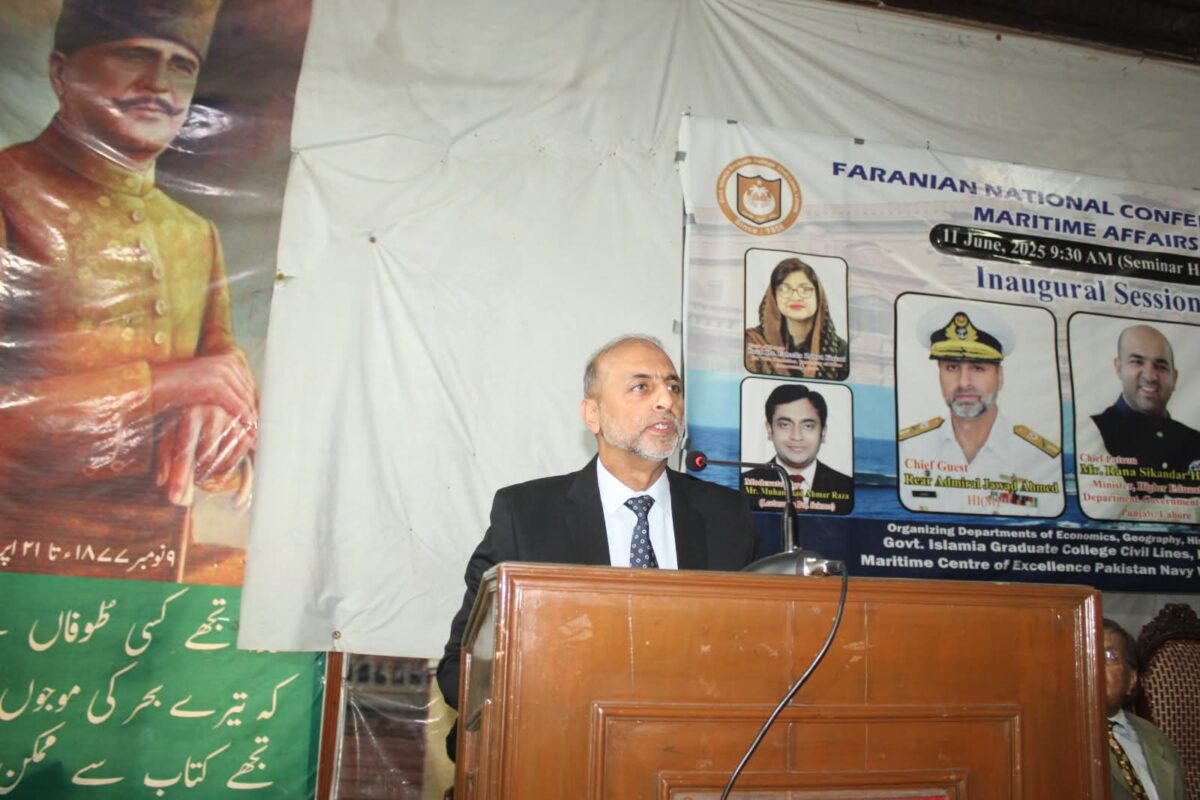
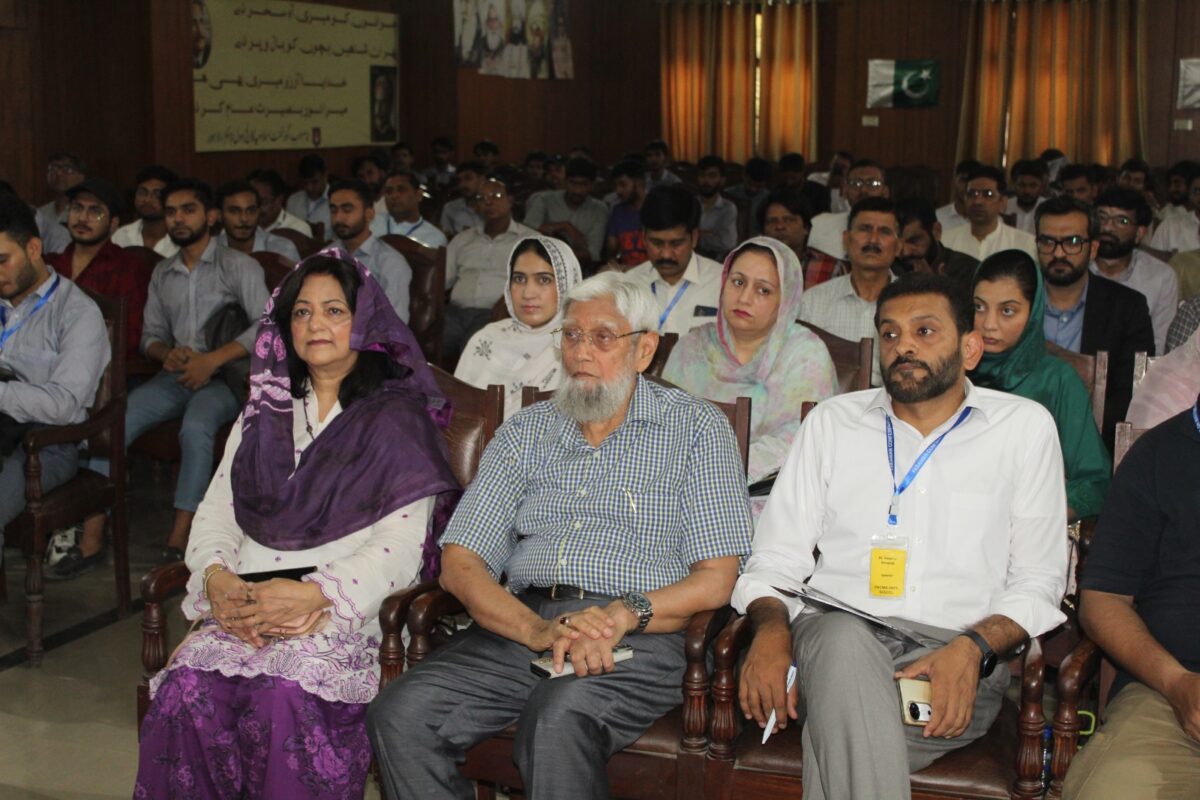
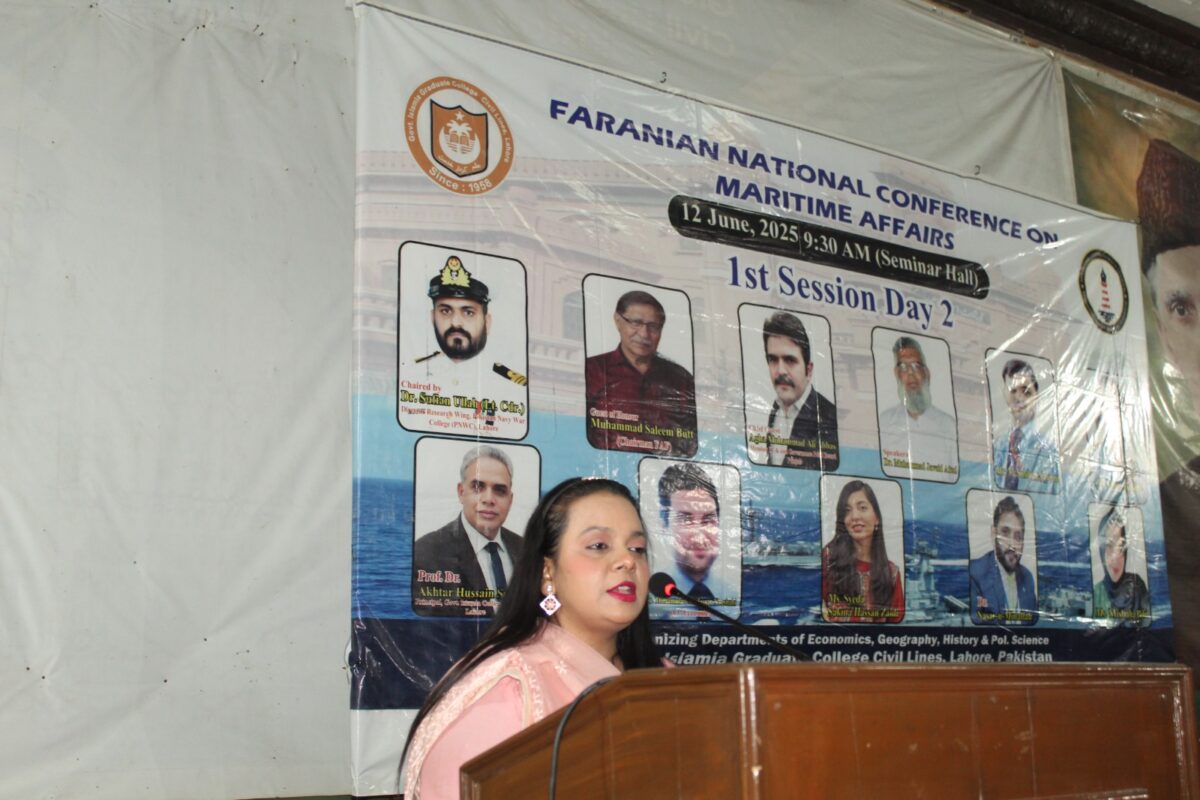
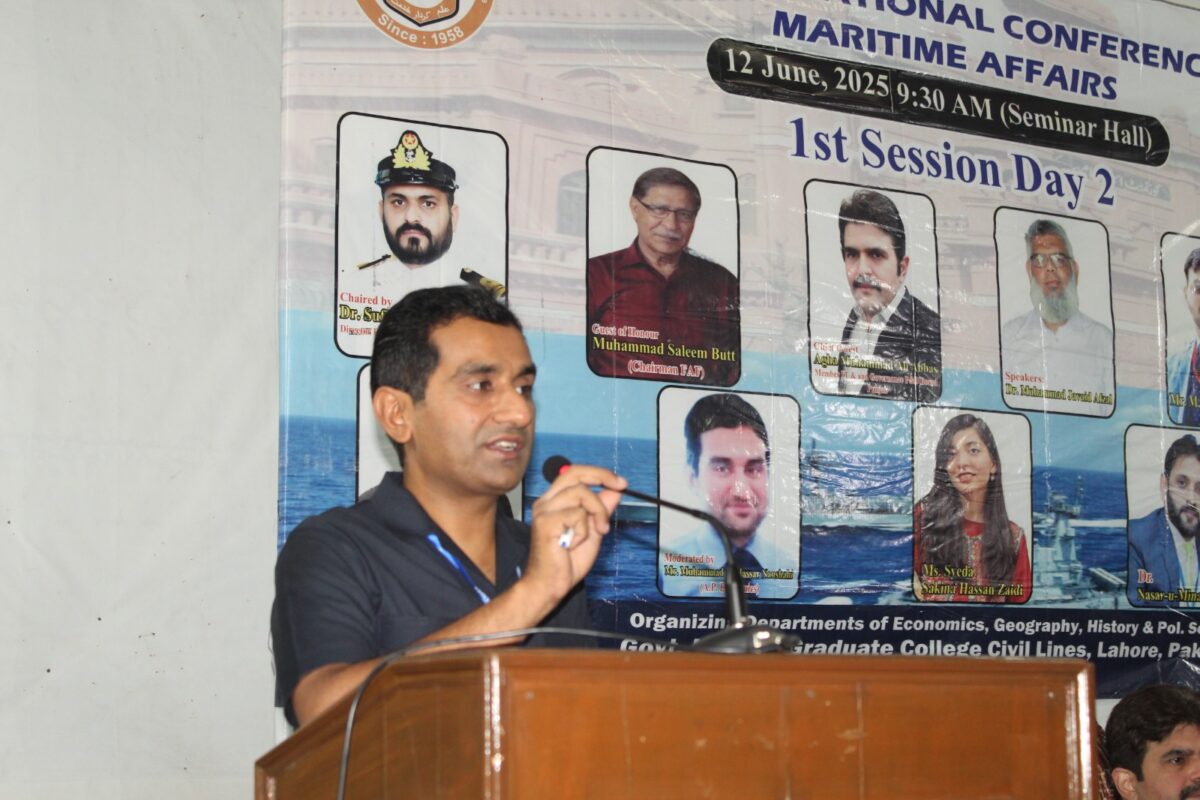
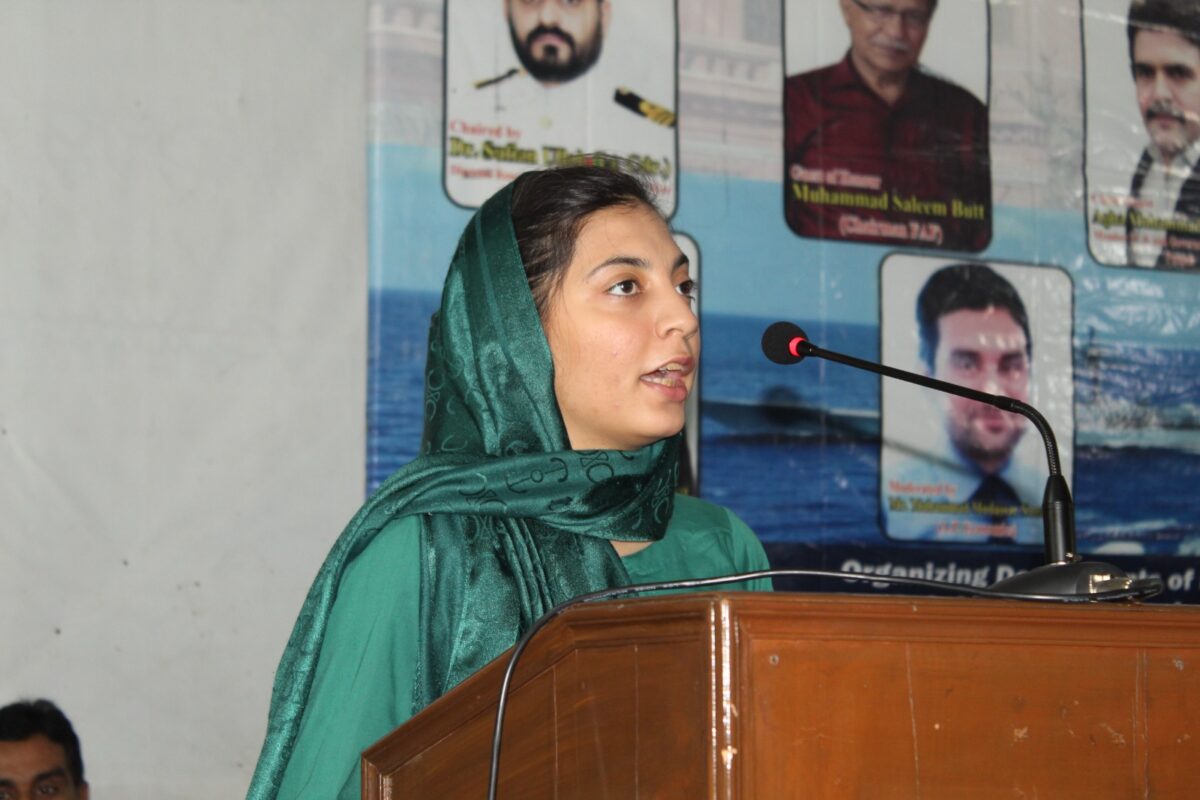
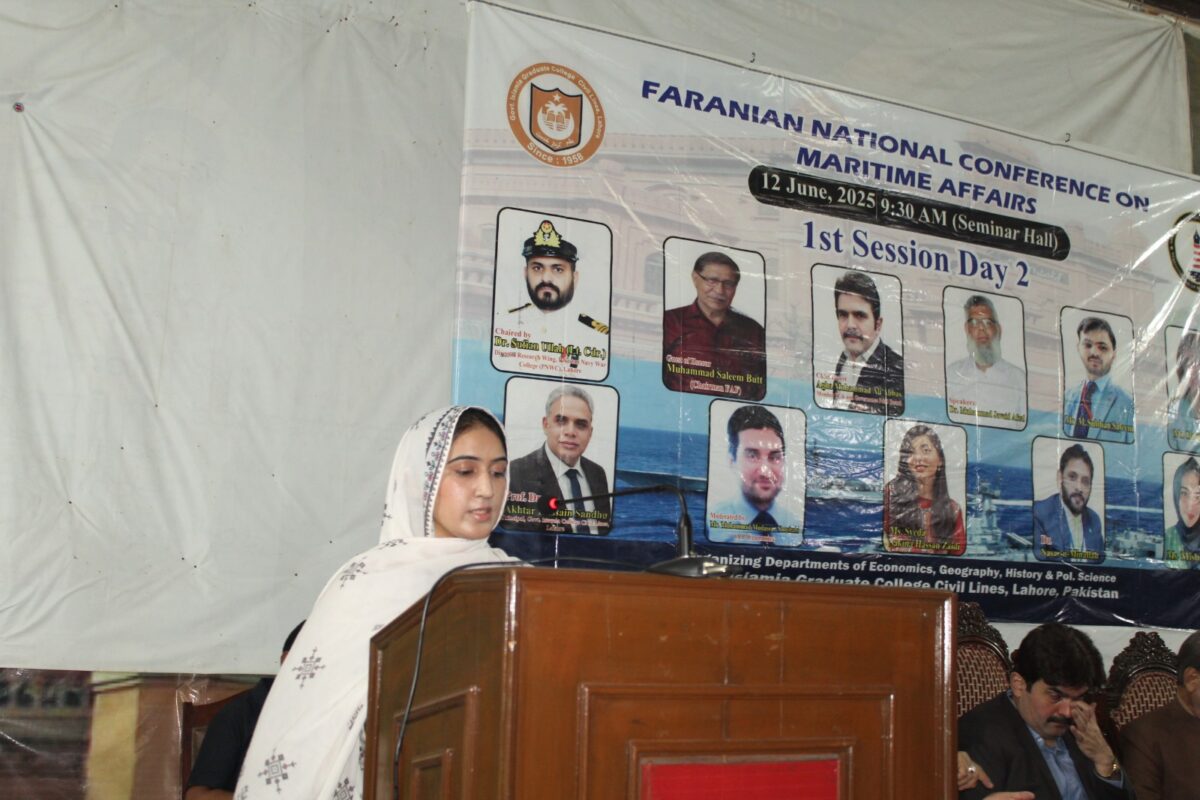
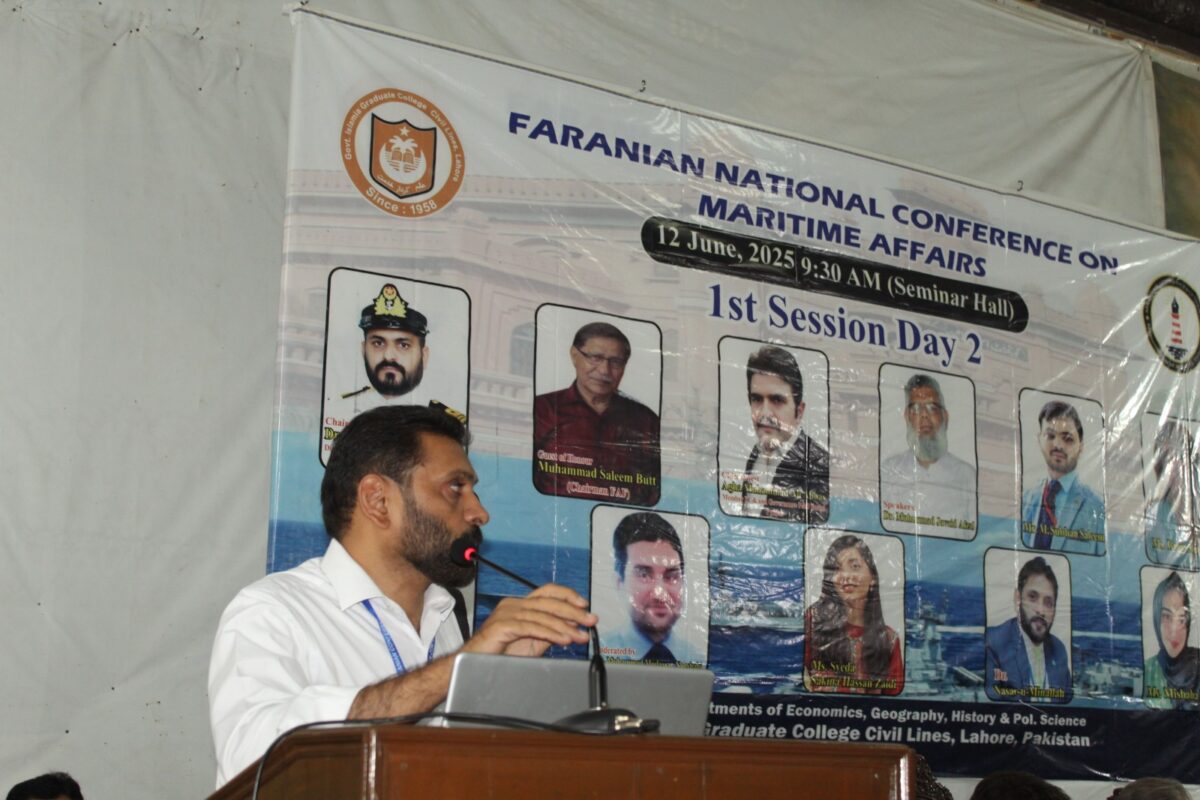
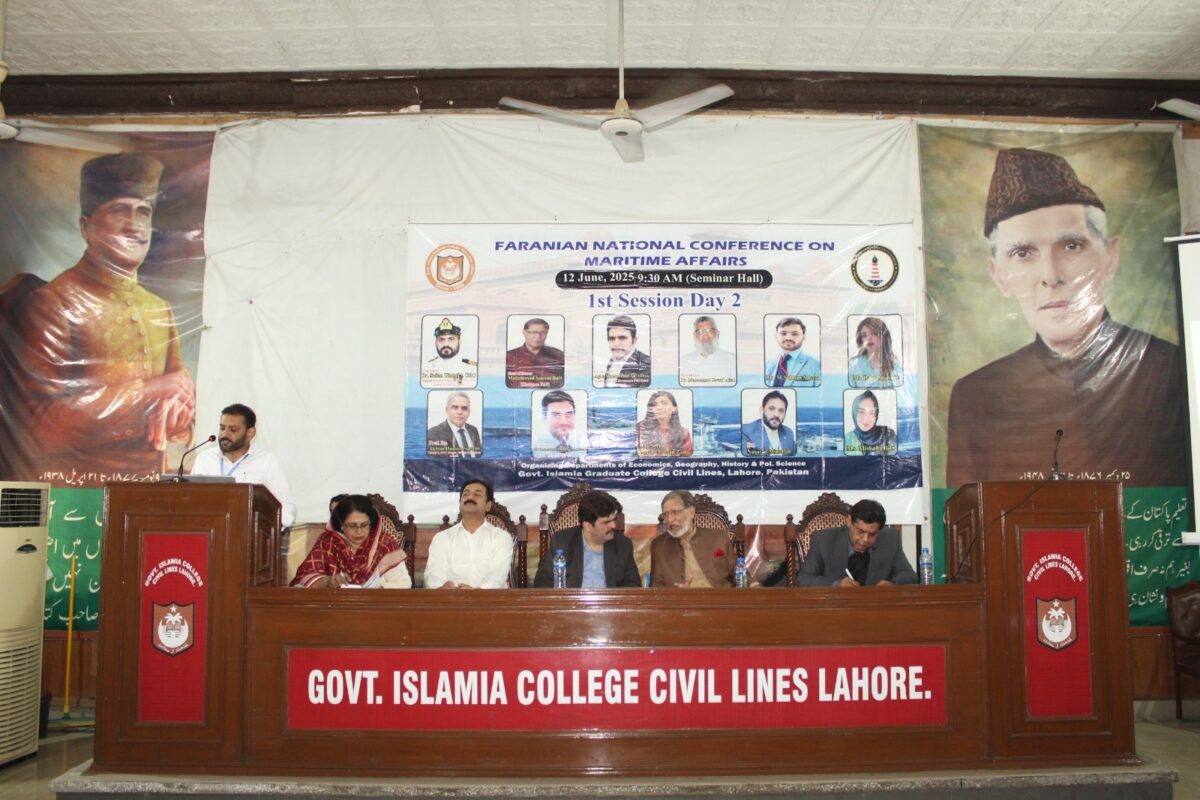
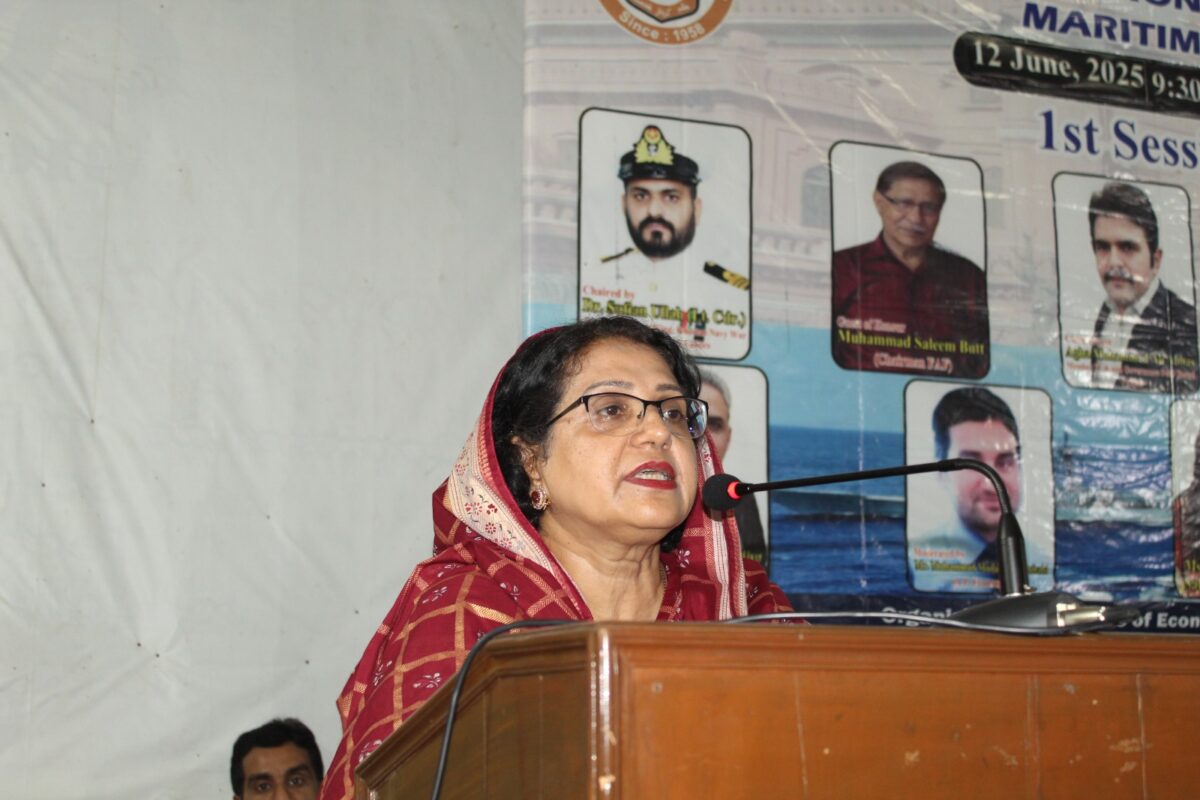
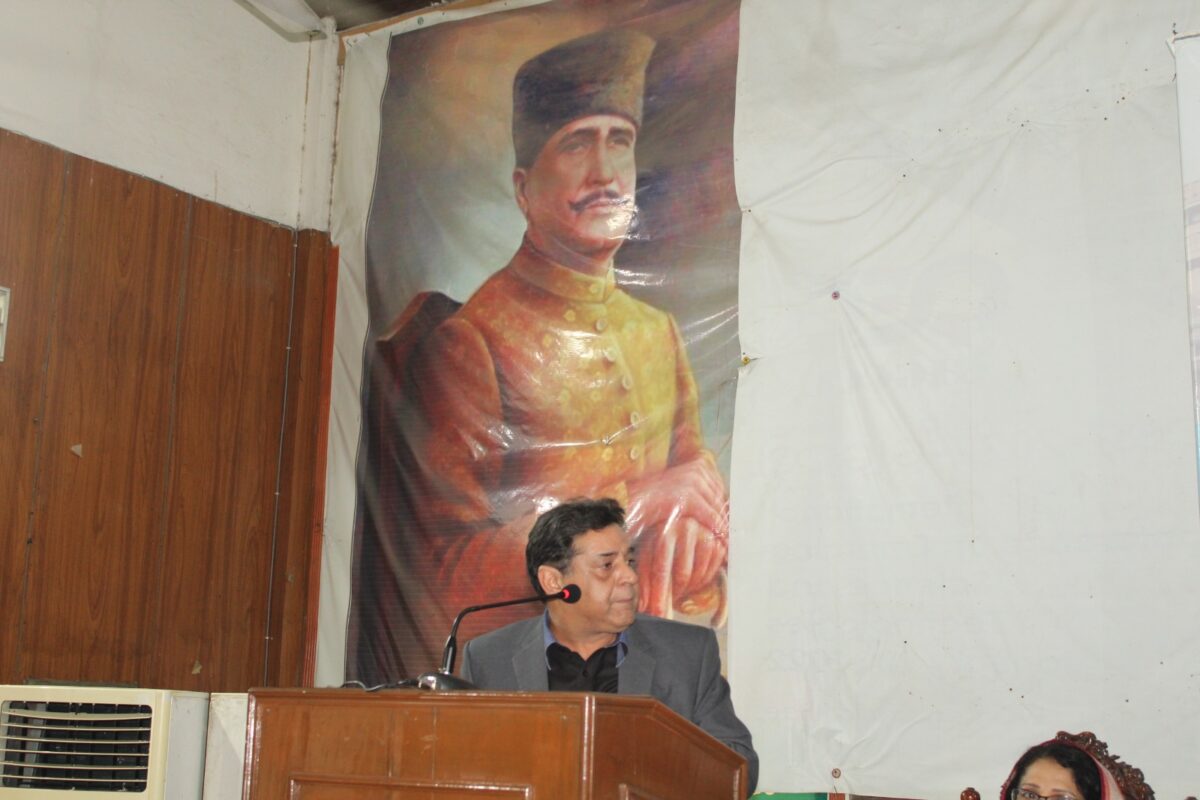
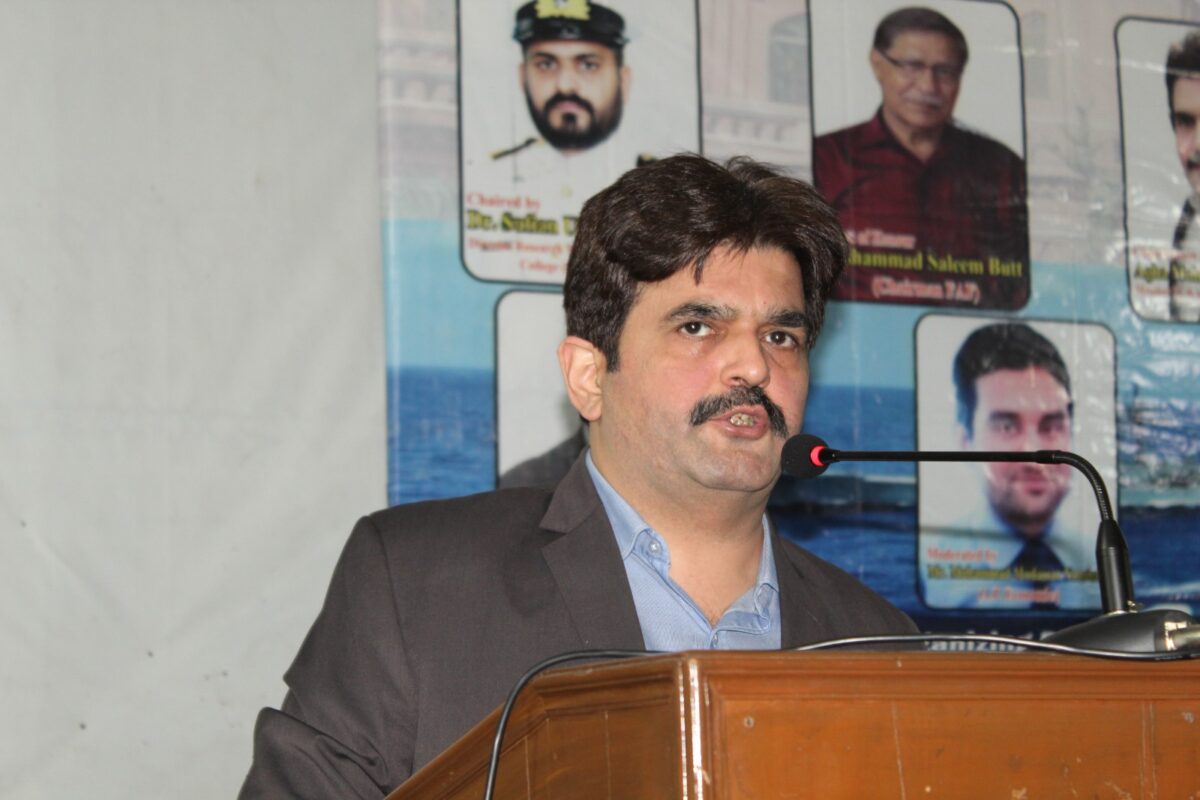
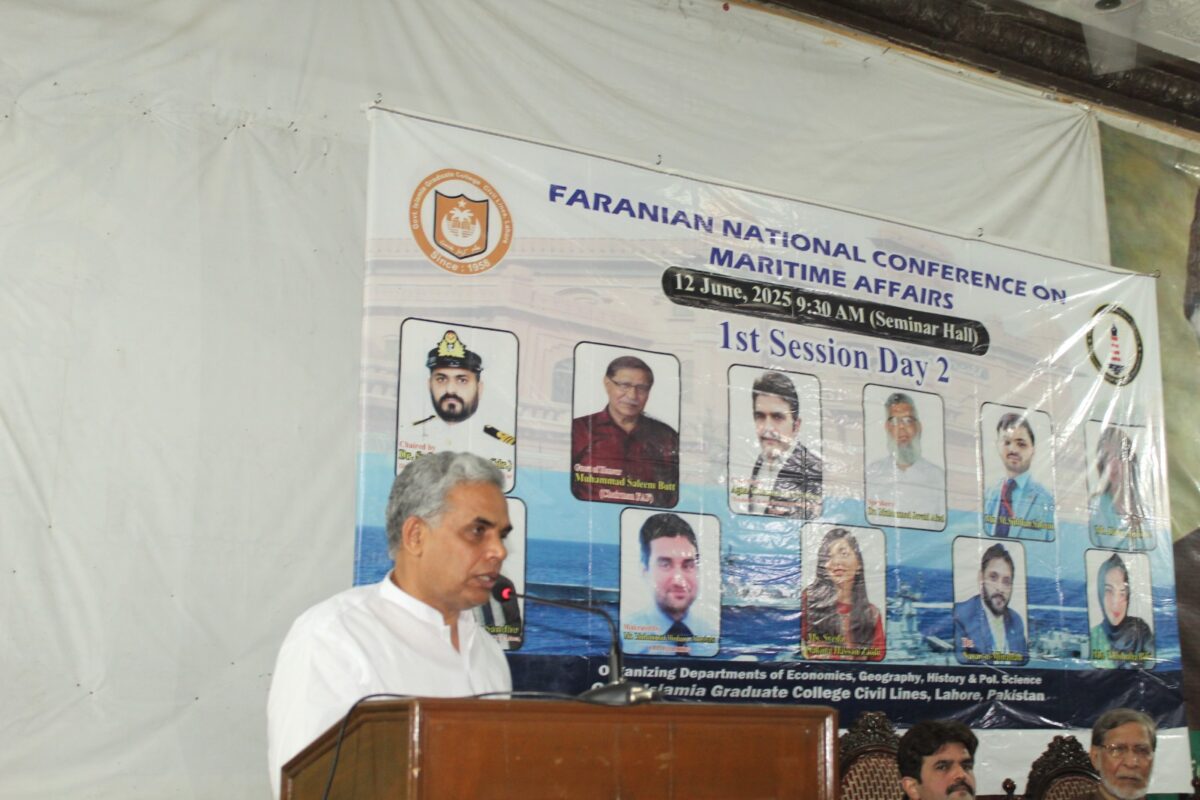
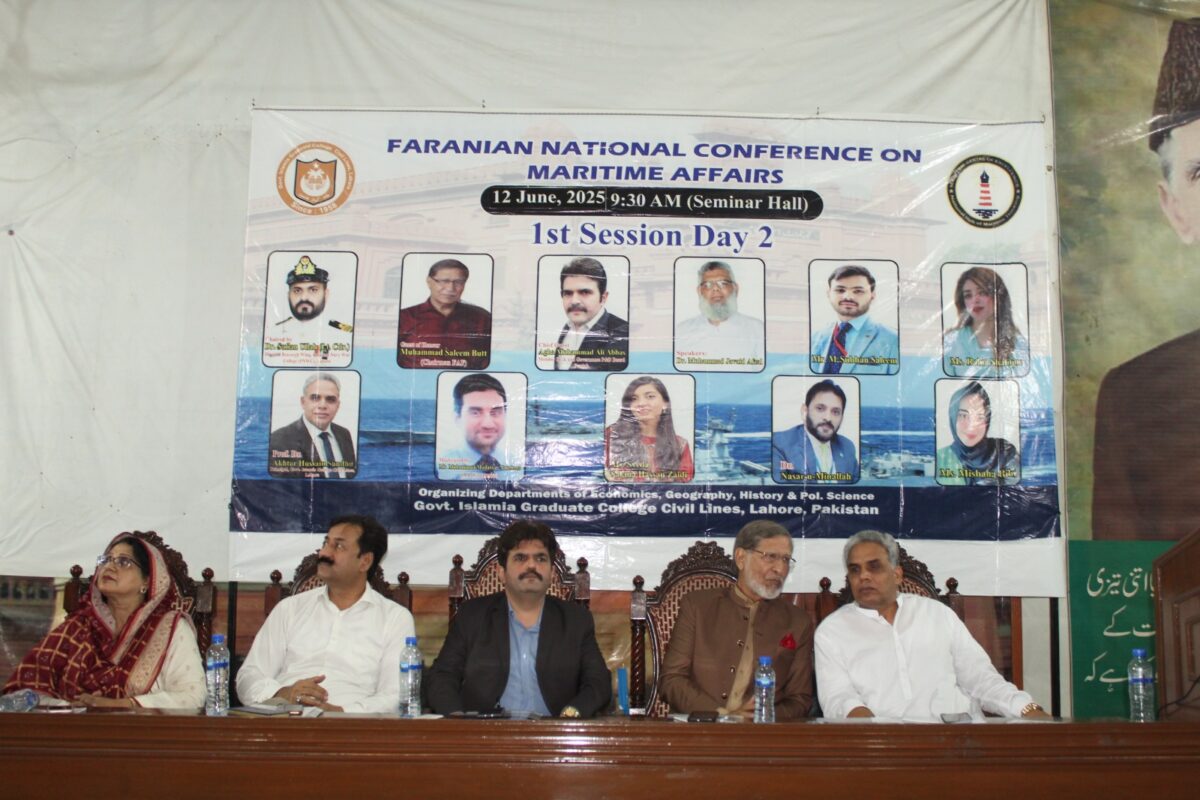
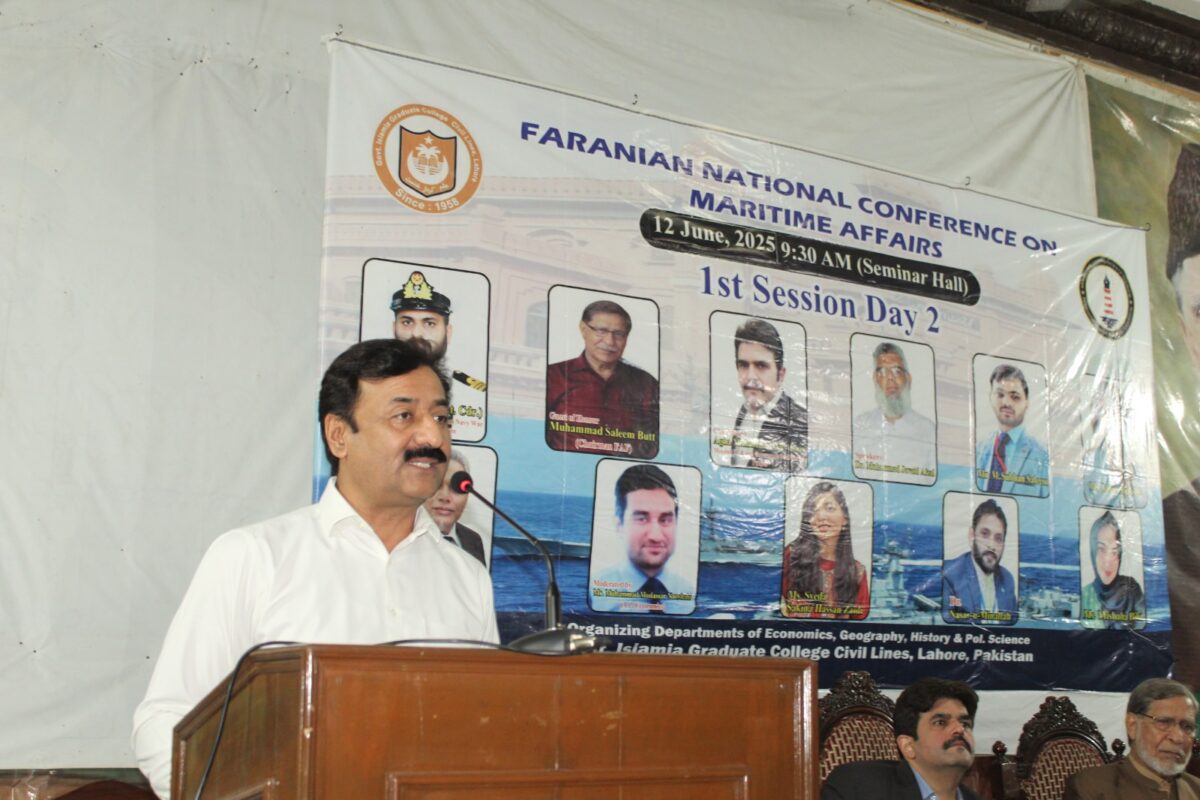
The takeaways of the Conference:
The blue economy has opportunities for capital acquisition, trade promotion, and sustainable and inclusive development. All possible steps should be taken in collaboration with all relevant parties to promote the country’s blue economy. Pakistan is uniquely positioned due to its more than 1,000 kilometers of coastline, three important ports, strategic geography, and an important global sea route. We should make full use of the capabilities of our maritime sector. The blue economy has an important place in the development of the Pakistani economy, as it has opportunities for capital acquisition, trade promotion, and sustainable and inclusive development. The international blue economy consists of trillions of dollars. The potential of the blue economy is a game changer for Pakistan’s national development and regional connectivity. The blue economy has vast opportunities in shipbuilding, fisheries, renewable energy recycling, and coastal tourism. The annual freight costs are about $7 billion, and there should be healthy competition between Pakistani shipping companies and foreign shipping companies. A coordinated strategy related to the blue economy and technology-based innovation, and regional influence has become an important pillar for the development of the country. All possible steps should be taken to promote the blue economy, and all stakeholders should make joint efforts to transform the maritime power. This is the need of the hour; the important role of the blue economy in the development process cannot be ignored. Pakistan is an attractive country due to its unique geographical location. The promotion of the blue economy is the top priority of the government. Our goal is a $100 billion blue economy by 2047.
Pakistan needs to be:
Focused on the shipping industry, blue economy, and maritime security; address the challenges and prospects of the blue economy in Pakistan; keep an eye on Sino-U.S. rivalry, climate change impacts, and sustainable development; work for implementing SDG 14, and the impact of climate change on sea routes; be focus on water’s role in Earth’s evolution and regional naval shifts; does not forget the importance of mangrove plants; keep watching Indus Water Treaty and enhace the role of Pakistani sea routes by converting them as economic corridors.
